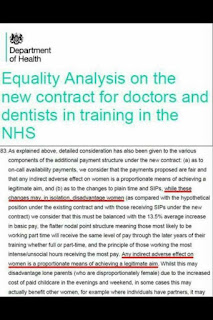Yesterday the Everyday Sexism
project started a #WhenIWas thread on twitter which asked (mostly) women and
girls to document the sexual harassment they can remember from ages as young as
5 or 6. It exploded on twitter and ended up trending worldwide. Feeling shaken
by some of these tweets I decided to cook myself dinner because I find cooking
weirdly therapeutic. While I was cooking I turned on my radio, it happened to
be tuned into Radio 1’s evening ‘Newsbeat.’ The two top stories were Lily
Allen’s interview detailing how she was stalked and consequently victim-blamed
by the metropolitan police and the enquiry launched yesterday by the UK government
into sexual harassment in schools. A government that, by the way, recently
announced that sex education would no longer be compulsory in schools. However,
this is not tory-bashing blog post for once it is a reactionary and perhaps
emotional call to action:
I already knew that the sexual
harassment reported under the #WhenIWas thread existed; of course I did but for
some reason it still shocked me. It still shocked and appalled me that girls as
young as 10 years old can recall being sexually harassed as they walk down the
road in their schools uniforms, it still shocked me that there were almost
20,000 tweets reporting situations where rape was absolutely insinuated. It
still shocked me that Lily Allen was essentially told to ‘hush up’ about the way
she was victimised and stalked by a man who broke into her home, where her
children were sleeping. It still shocked me hearing the reports from teachers
and students, female and male, about their experience of sexual harassment in
schools. The #WhenIWas tweets revealed just how normalised, prevalent and
accepted rape culture is in the UK today and around the world. From telling
girls in schools what not to wear on non-uniform day to avoid being
‘distracting’ to boys and teachers to being cat-called on the walk home from
school, to being groped in public spaces or sexually assaulted in private ones,
these tweets paint a picture of modern Britain that frightens, restricts and
angers women. Rightly so.
(N.B. Of course, sexual harassment does not just affect women as a troll so
kindly pointed out to me. The #WhileIWas thread predominantly documented and targeted
women’s experiences and women do tend to experience harassment more widely. BUT
reconceptualising gender roles in regard to sex would also involve removing the
stigma and silence that shames men also.)
Everyone remembers the first time
they are cat-called walking down the road in their school uniform or groped in
a night club. That’s just part of being a girl, right? And everyone remembers
the first time they try and speak out about it to ripostes of: “Don’t take
yourself so seriously” “It’s a compliment” “Oh boys will be boys” or worse,
“Don’t be so frigid.” From the minute to the very extreme, rape culture joins
the dots between girls being groped on public transport from as young as 13
years old to grown women being silently raped in their bedrooms. This is not a
world where I want to raise a child. In a world that boys are taught that sex
and women are public property they are entitled to and girls are taught that
their sexuality can be reduced to feeling ‘flattered’ by an old man in a white
van honking his horn. I fear for my 17-year-old sister although she’s probably
already experienced some of the above, I fear for any young boy assaulted at
school and silenced because he ‘got some action’ and ‘should be proud.’ Whilst
the enquiry launched by the government is a step in the right direction it is
nothing without education. Consent education, sex education, and relationship
education. Education that teaches girls and boys not only that to rape or be
raped is abhorrent but also that lifting a girls skirt up on the stairs on the
bus ‘as a laugh’ or calling boys ‘frigid’ for ignoring advances from their
teacher is also wrong. The taboo surrounding sexual harassment in this country
must be broken and education is the only way to do that. Only by breaking that
taboo and teaching girls and boys, women and men about sex properly and publically
will the #WhenIWas horrors be stopped.






